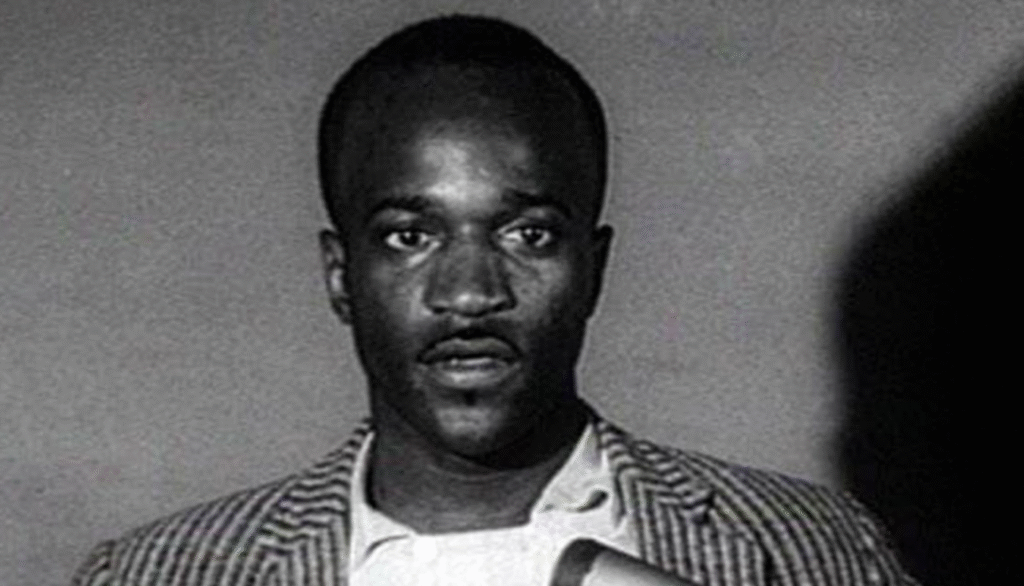Top 10 Facts About Willie Peacock

Willie Peacock
Willie Peacock was a dedicated and determined civil rights activist, who helped to shape the struggle for equality across the United States. Growing up in Mississippi, Peacock was deeply engaged in the struggle for the right to vote, desegregation and equality to African Americans during one of the most turbulent periods of American history. His unstoppable work with his fellow members of the Student Nonviolent Coordinating Committee (SNCC) and other groups made an influence in and influenced the Civil Rights Movement in the Deep South. Here are more than ten important details concerning Willie Peacock, a key character in the fight to defend civil rights.
1. Willie Peacock Was Born in Indianola, Mississippi
Willie Peacock was born in Indianola, Mississippi, a town that later served as an inspiration for his early activism. Growing in the secluded South, Peacock experienced firsthand the grim realities of discrimination based on race, which inspired him to get involved in the struggle for equality and justice. Indianola is situated in Sunflower County, would become an important battleground for civil rights efforts in Mississippi and with Peacock in the forefront.
2. He Became an Early Member of the Student Nonviolent Coordinating Committee (SNCC)
Peacock was a founding participant in The Student Nonviolent Coordinating Committee (SNCC) an influential groups during the Civil Rights Movement. SNCC was well-known for its efforts to organize grassroots especially in the South as well as for its capacity to support young activists. Peacock’s involvement in SNCC was the beginning of his commitment throughout his life to social justice and civil rights. Through SNCC Peacock gained the experience of organizing protests, coordinating voter registration drives, as well as organizing training for nonviolent resistance.
3. Played a Pivotal Role in Mississippi’s Voting Rights Movement
One of Peacock’s most important contributions was his involvement in his work in the Mississippi voter rights campaign. In the 1960s, African Americans faced numerous barriers to voting, such as exams for literacy as well as poll taxes and even intimidation. Peacock helped to get registered Black citizens in Mississippi which was a very risky job due to the state’s ensconced white supremacist structures as well as the an armed resistance towards civil rights. Despite challenges and threats Peacock’s commitment helped boost Black voters’ registrations in the state that is among the most oppressive and segregated states of the South.
4. He Helped Organize Freedom Summer in 1964
Freedom Summer was one of the most influential initiatives in the Civil Rights Movement, and Peacock was a key player in its design and execution. It was held in 1964. Freedom Summer aimed to increase Black voter registration in Mississippi and attracted many volunteers all over the nation. Peacock collaborated in conjunction with SNCC as well as other organizations to educate volunteers on tactics to register voters and non-violent resistance. The campaign faced a lot of conflict and violence, but was successful in bringing focus to the injustices of Mississippi.
5. Peacock Worked Alongside Iconic Civil Rights Leaders
In his time as a member of SNCC along with other groups for the advancement of civil rights Peacock was in close contact with legendary civil rights figures like Fannie Lou Hamer Bob Moses, and John Lewis. While working with these leaders, Peacock gained invaluable insights on effective organizing strategies in addition to the value of a community-led approach to changes. His collaboration together with Hamer an additional local from Sunflower County, highlighted the importance of local voices in the fight for civil rights.
6. He Faced Constant Threats and Violence
The work of Peacock in Mississippi was a risk, as he was continually threatened with intimidation, and even violence from white supremacists as well as law enforcement. Mississippi was famous for its resentment towards civil rights activists and Peacock’s efforts in registering voters placed him in danger’s in the direction of. Despite this, Peacock remained undeterred, making sure he secured equality in voting rights and the rights of African Americans in Mississippi.
7. Peacock’s Efforts Helped Lay the Groundwork for the Voting Rights Act of 1965
The efforts that was done by Willie Peacock and others in Mississippi attracted national attention to Mississippi’s methods of preventing voters from voting and helped to create momentum to pass the Voting Rights Act in 1965. The legislation, promulgated through President Lyndon B. Johnson, sought to eradicate voter discrimination due to race and marked a major triumph in those who participated in the Civil Rights Movement. Peacock’s contribution to the voter registration process in Mississippi helped in setting the stage for this historic law.
8. He Was Part of the Freedom Democratic Party Movement
Peacock was a key participant with his involvement in Mississippi Freedom Democratic Party (MFDP) which was a political group that was formed to oppose the predominantly white Democratic representation from Mississippi. The MFDP was formed to be a representative of Black Mississippians who were excluded from the political system. Peacock’s involvement in conjunction with the MFDP was instrumental in bringing awareness of the need for a more democratic system that was inclusive within the South. It was the MFDP well-knownly sent a group at the 1964 Democratic National Convention, where Fannie Lou Hamer gave her strong speech about the necessity of representation.
9. Focused on Nonviolent Direct Action
As with the majority of SNCC members, Peacock was a strong advocate of direct action that was nonviolent as a means of tackling racism. Peacock and his fellow activists believed that nonviolent protest could be a powerful method to combat segregation and discriminatory practices that were prevalent in the South. Through peaceful sit-ins, protests, as well as demonstrations Peacock along with his peers stressed the morality of their cause, even if they were they were met with violence and hostility.
10. Contributed to Education and Training Programs
Peacock was committed to educating people about rights under the law and the importance of non-violent activism. He was instrumental in establishing classes which taught the community to manage the registration process and how to stand up against intimidation, and defend their rights. These initiatives in education were vital in helping Black Mississippians to take control of their future political destiny and challenge the system which kept them from being a part of the system.
11. He Inspired Future Generations of Activists
Peacock’s determination, courage to his cause, dedication and perseverance have inspired many people in the social justice and civil rights fields. His activities in Mississippi showed the power grassroots activism can make in reforming unjust systems. his legacy is embodied in activists who fight for justice in the present. Peacock’s story serves as an illustration of the power of perseverance and the necessity of fighting for equality regardless of the obstacles.
12. His Legacy Is Honored in Civil Rights History
While Willie Peacock may not be more well-known than others of his time but his contribution to his role in the Civil Rights Movement are highly acknowledged in the historical narratives of the time. His work is highlighted in museums dedicated to civil rights as well as documentaries and books that chronicle the fight for equal voting rights and equality. The legacy of Peacock is regarded as part of the larger movement that changed America’s American South and took progress towards racial justice.
13. He Continued His Commitment to Social Justice Beyond the 1960s
Following the peak during the Civil Rights Movement, Willie Peacock continued to be a champion of social justice by working in the field of community development as well as political activism in Mississippi. He remained committed to empowering local communities as well as supporting youngsters who had been influenced by the Civil Rights Movement. His dedication to justice and equality demonstrates the long-lasting impact of activist for civil rights.
14. Peacock’s Story Is a Reminder of Mississippi’s Complex Civil Rights History
Mississippi was among the most difficult states that civil rights advocates had to fight. However, it also had some of the most courageous leaders in the movement such as Willie Peacock. His story is a reflection of the complexity of Mississippi’s history of race and the perseverance of those who worked to overthrow its oppressive systems. Today the history of Mississippi’s civil rights is an opportunity for pride and reflection for the residents of the state, and Peacock’s legacy is a compelling illustration of strength to face adversity.
Conclusion
Willie’s contribution to his work in the Civil Rights Movement was instrumental in advancing the rights of voters as well as in tackling segregation and encouraging others to join in the struggle for equality. From his involvement in the grassroots with SNCC to his participation in his involvement with the Mississippi Freedom Democratic Party, Peacock created a lasting impression on the fight for justice. His determination and tenacity even in times of strife was instrumental in helping establish the foundations for important shifts in American society, such as those enacted under the Voting Rights Act in 1965. While he’s not as well-known as other icons of civil rights The legacy of Willie Peacock lives on, inspiring the next generation to strive for equality, justice and peace. The story of Willie Peacock is testimony to the ability of everyday people to create extraordinary change and is an example of the sacrifices that were made to attain equality and civil rights.







